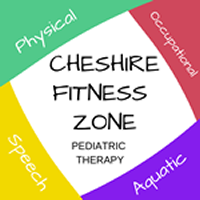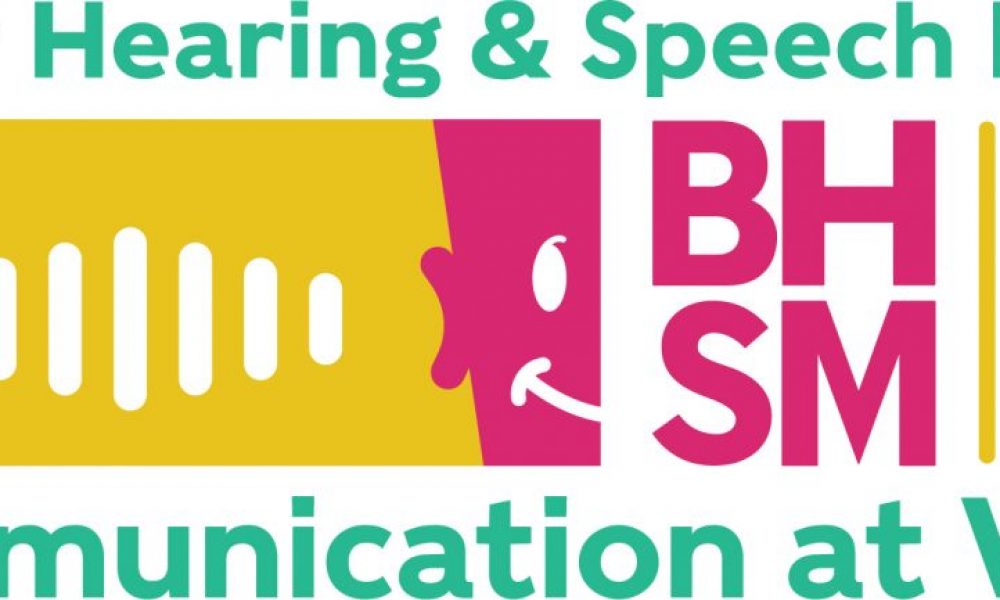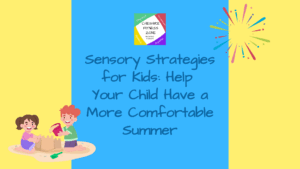Better Hearing and Speech Month
As speech-language pathologists (SLPs) at Cheshire Fitness Zone, we are always championing for increased awareness and support for individuals with communication delays, disorders, and differences. That’s why we are excited to celebrate Better Hearing and Speech Month! Each May, the American Speech-Language-Hearing Association (ASHA) leads the effort to celebrate and to raise awareness of communication and hearing based disorders. This May ASHA will provide guidance regarding prevention and/or management of communication disorders during COVID-19.
Covid-19 has brought unprecedented changes for everyone. At Cheshire Fitness Zone, we have adjusted and recalibrated to offer our services through teletherapy. We feel a strong need to provide our patients with support and guidance through this challenging time.
What is communication?
Communication is the process of exchanging information and ideas. Speech language pathologists (SLPs) work to improve individuals’ ability to receive and to exchange information and ideas effectively. SLPs do this by addressing cognition, articulation, voice, fluency, receptive and expressive language, pragmatic (social) language, and alternative and augmentative communication.
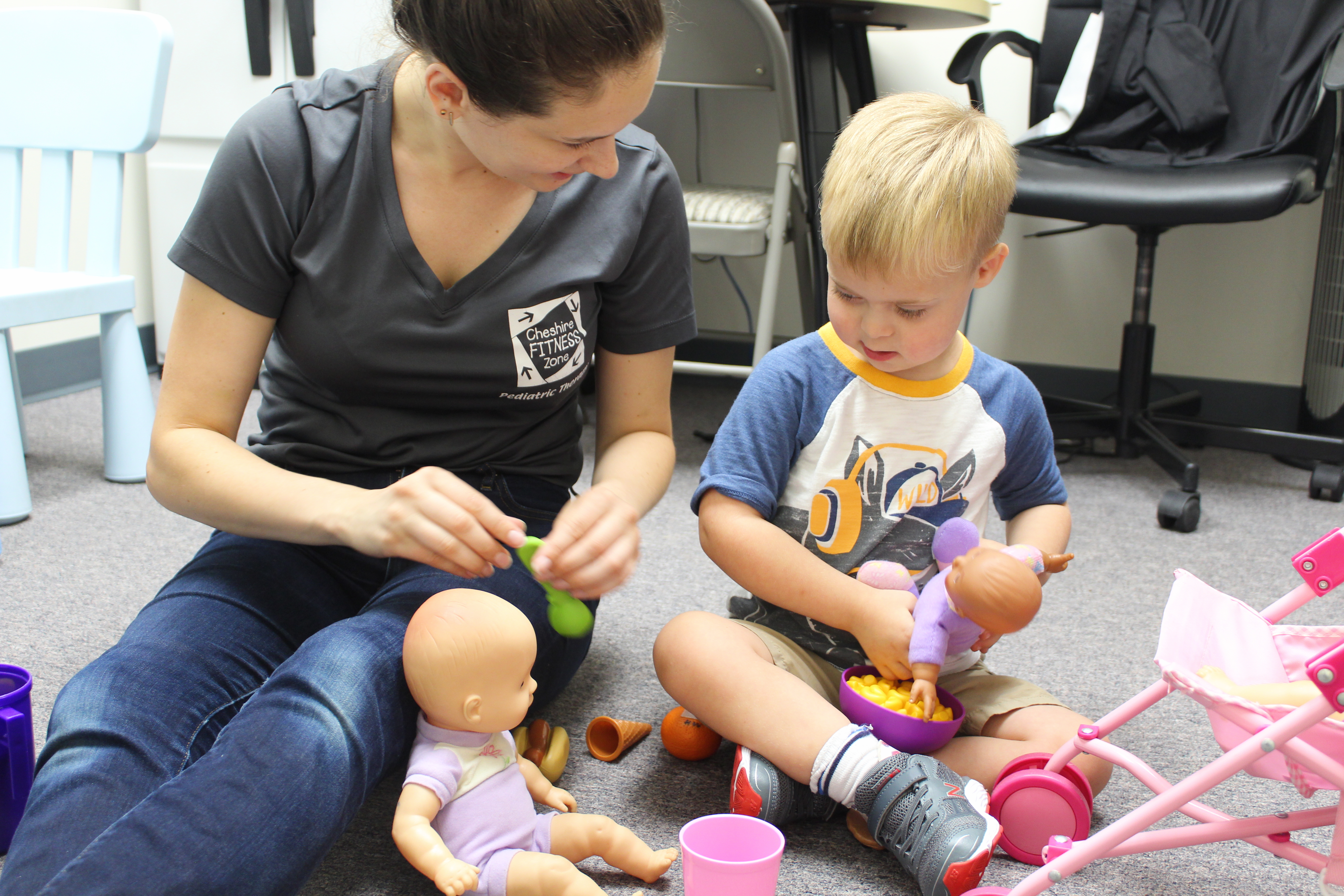
How do I know if my child would benefit from speech therapy?
It is easy to get overwhelmed with the amount of information available online regarding communication and development. That’s why we created a developmental milestone guide (birth to 5 years) that covers communication and motor development in one, convenient chart.
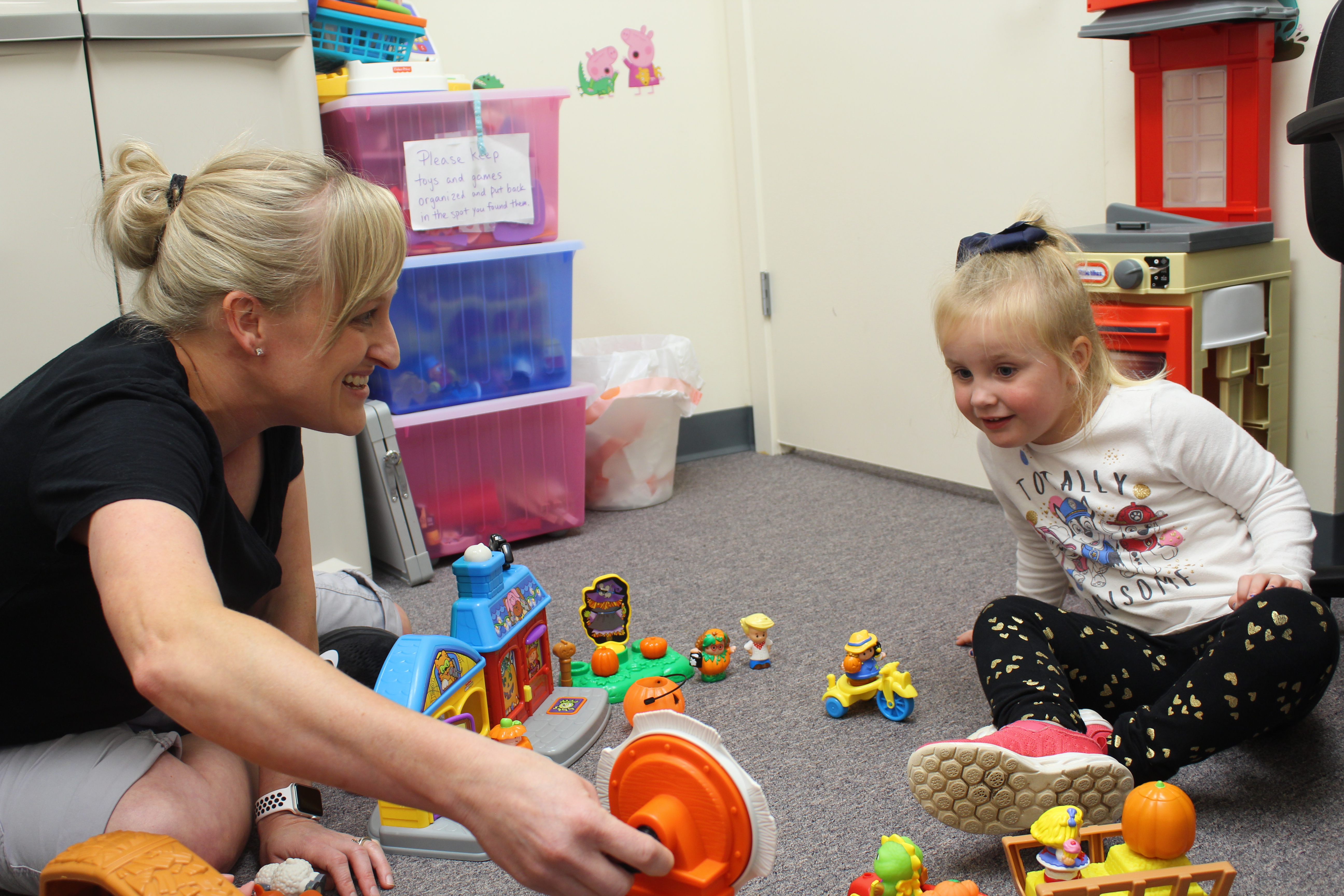
My child receives speech therapy – what can I do at home?
While each child is unique, there are many activities that can be done at home to support communication skills. Now, more than ever, it is important to talk to your SLP about how to incorporate your child’s goals into your daily routine – so that speech isn’t another activity that must be completed, but rather embedded into your routine all day long.
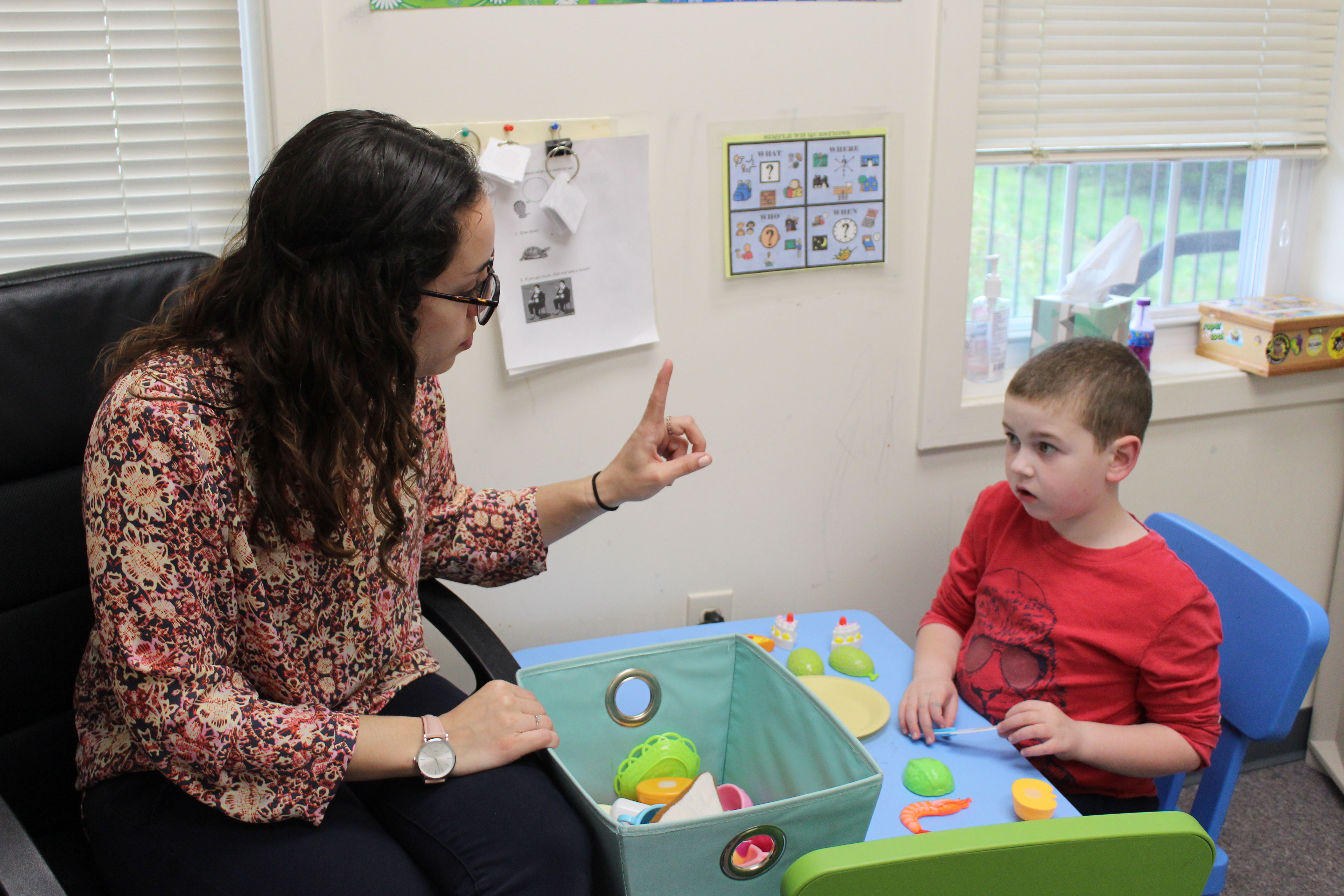
How to be a strong language model:
- Use more comments than questions when talking with your child. This provides examples of varied sentence forms and grammar along with reducing pressure.
- Allow time for your child to respond (verbally or nonverbally) to your comment or question. Many times, we miss the child’s attempt to respond because we are repeating ourselves or we have moved on to another comment.
- Describe your actions and your thoughts throughout the day (i.e,. “I’m hungry, I need something to eat. Let’s go to the kitchen to get a snack.”) When you think out loud, you’re providing your child with vocabulary and grammar models that they can learn and eventually imitate.
- Make “mistakes” on purpose. During a craft activity, “forget” to give them an essential item and wait to see what your child will do – do they realize it’s missing; will they attempt to tell you/to request?
- Use verbal routines – predictable phrases that are said the same way each time during a specific activity. Saying a certain phrase over and over and over will help your child to memorize it and eventually to participate in it (by gesturing, vocalizing, etc.).
- For children that use AAC, use the above tips while incorporating your child’s communication mode (gesture, pictures, speech generating device). Think of your child’s communication mode as another language – if you were teaching your child an additional language, you would communicate in that language often.
- If your child is working on articulation, emphasize that sound throughout the day. Your child does not need to repeat and try to correct each production (that may be frustrating), but rather talk about the target sound in a neutral manner. (i.e., that’s the “p” sound, our lips “pop”).
Most importantly – have fun! Play is the foundation for language learning. Almost every speech and language goal can be addressed through play. When you are having fun, your child is more likely to participate and to remember the interaction. This will add salience to whatever goal you’re trying to achieve.
Think about the above tips next time you’re playing and see how your child responds. Please reach out to your SLP for further clarification and specific tips for your child!

If you feel that your child could benefit from speech therapy, we are now offering some evaluations through teletherapy services. Please call the clinic at 203-250-9663 for more information.
